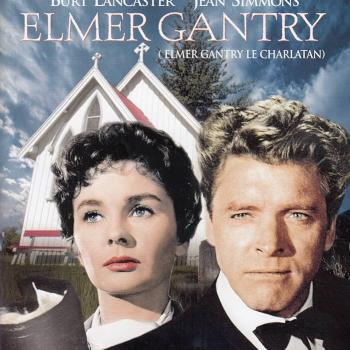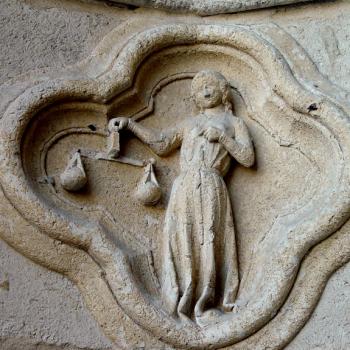"But why do you have to call yourself that?"
I'm always suspicious of questions containing the phrase "why do you have to . . ." I'm not usually talking about life and death situations when somebody asks me one of these absurd and annoying questions, and I'm pretty sure the people doing the asking already know that, which makes me wonder what they're really trying to do with their words.
In this case, I was being asked about why I call myself Heathen.
Have you ever seen a heath? It's a kind of wild and open place. Heaths are usually home to a lot of low-growing shrubs, such as heather. Imagine that. In Shakespeare's King Lear, one of the rare stage directions has the old King and his few followers out at night on a "blasted heath," which doesn't sound very comfortable.
It seems likely that the word heathen originally referred to people who lived on heaths. No problem there; just a straightforward description. Then some other connotations were attached: those wild, uncivilized people who lived on heaths. Eventually, the idea of un-Christian was thrown into the mix, as well. The notion of hardy people who lived by their labor in such places was lost, and now all we're left with is "wild, uncivilized, un-Christian." You know: heathen. It's a word that still carries a lot of freight, all of it negative, and none of it put there by the heathens themselves. In some circles, using the word heathen in a serious way can still cause some folks to blanch.
Let's talk about another word for a moment: Comanche. Yes, them. It appears this fearsome tribe was an offshoot of the Shoshone. They called themselves something like Nemeneh, which translates roughly to "The Human Beings" or "The People." They didn't call themselves Comanche. That's what the neighboring Utes called them in their own language, and that word translates roughly to "The Enemy." Probably without knowing why, that's the name by which the English-speaking Americans of the time came to know them, too, although I'd say it's virtually certain that they also called them heathens at any opportunity.
The Comanche tribe still exists, in and around Oklahoma. It may be that they still call themselves Nemeneh amongst themselves. But to the rest of the world, they are Comanche, a name they bear with pride, I think. If they do, they deserve it.
What did the people in Northern Europe who believed in Thor and Odin and Freya and the other gods of the Norse Pantheon call themselves? On the basis of their religion, we have no idea. Those people didn't write much. They had tribal names: Goths, Geats, etc. But those names don't tell us about their gods. The people who came later, whether Christian invaders or Christian converts, wrote about heathens, and the name stuck like glue.
The churchmen who brought Christianity into Northern Europe were committed to the extermination of the heathen gods. But they made a mistake: they wrote down the stories about those gods as literature, and that's where those gods slept for a long time.
In case you haven't figured it out by now, I'm not writing this piece for the Heathens in the audience. I'm writing for any others who pass this way. I don't do this because I'm trying to convert you. I do this because I want you to understand something.
It's interesting to read histories of obscure literatures. But it is safe to say that the Norse gods have been waking up for the last three hundred years or so, as their stories slowly made their way out of old Icelandic manuscripts into German and English. And there are brief notes here and there about people who weren't content just to read the stories: they wanted to do something with these gods. In a culture so thoroughly Christianized, that is nothing short of amazing. Something powerful is happening here. One can also wonder what individual Icelanders really thought in their private hearts while they were the sole custodians of their religious heritage after the Conversion in the year 1000.
Yes, there is nowadays a formal name for our religion: Ásatrú (pronounced OW-sa-troo), a word coined in the 19th century. That name isn't used much, though. Mostly, we call ourselves Heathens, and we do so partly because we're proud of that which makes some folks blanch. We're people who didn't roll over and surrender when someone told us what we had to believe when we didn't believe it. If you have a problem with that, the problem is yours, and you'll have to deal with it. It was your people who first called us heathens. Like the Comanche, if you want us to be ashamed of the name you gave us, you'll wait a long time.
In a world of sound bites, it's hard to encapsulate a religion in a few words, but I'll try here. If Ásatrú has a primary message, this is it:





